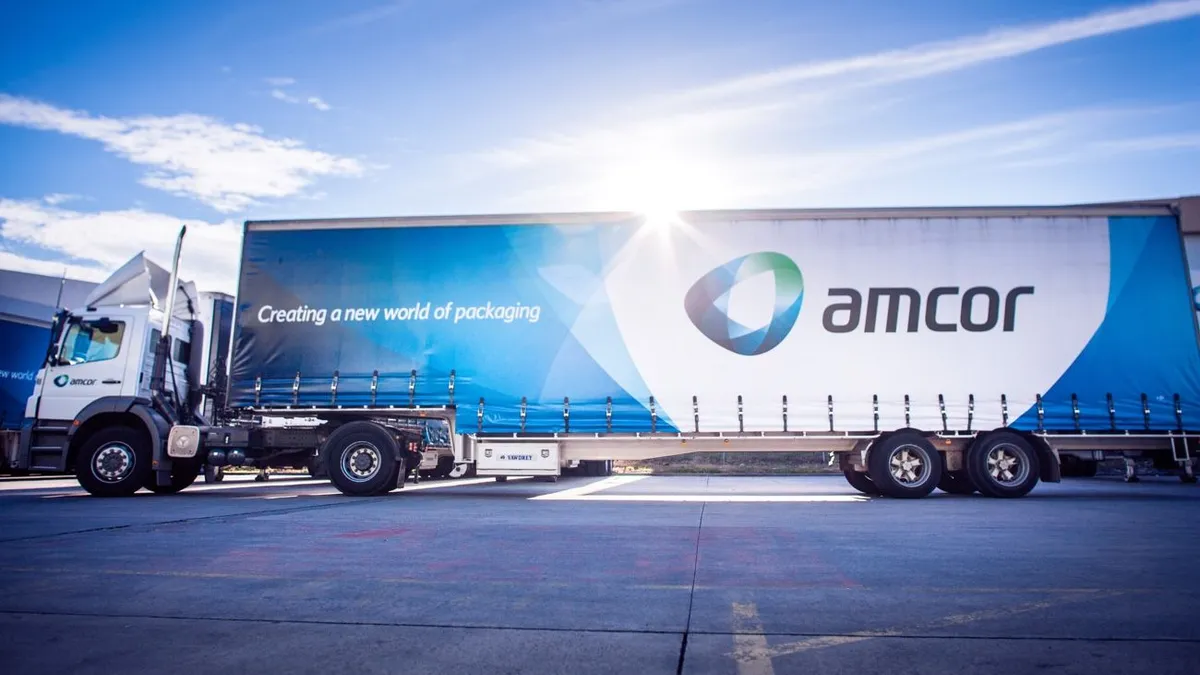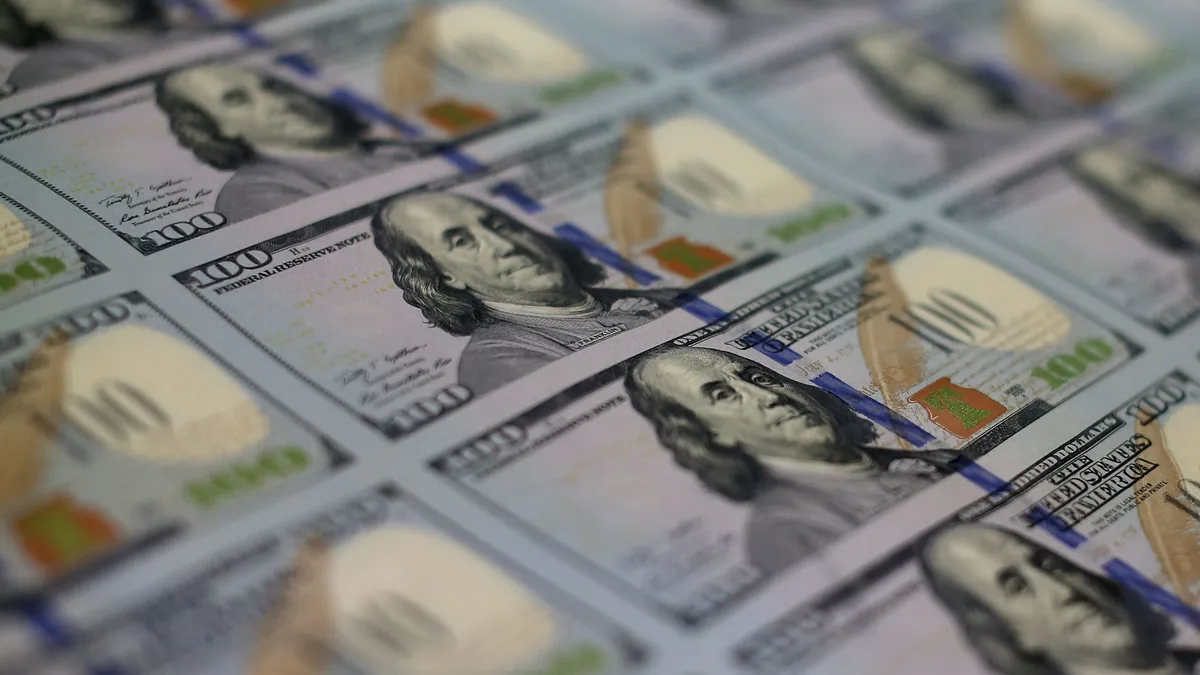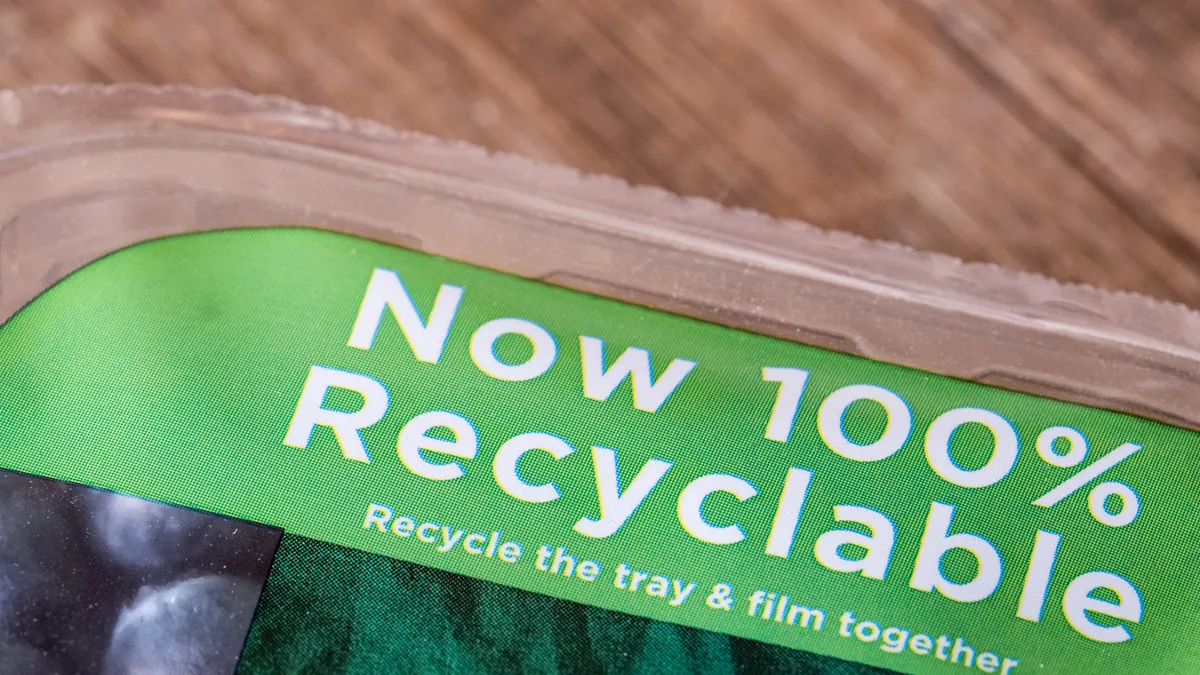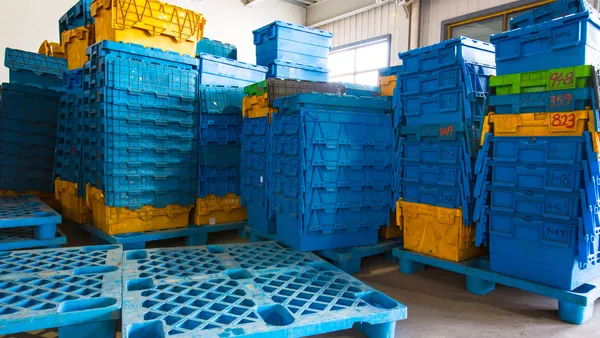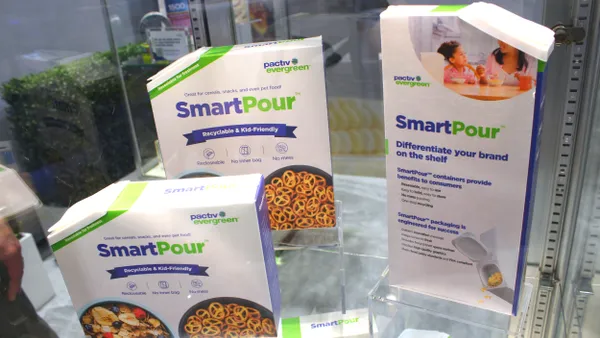Dive Brief:
- Amcor plans to acquire Berry Global in an all-stock deal, the companies announced Tuesday, with the goal of becoming more dominant in consumer and healthcare packaging. The transaction is worth an estimated $8.4 billion, based on a price of $73.59 per share for Berry’s stock.
- The deal will result in Amcor shareholders owning approximately 63% of the company and Berry shareholders owning 37%. Amcor CEO Peter Konieczny will lead the combined company. Their combined annual revenues are $24 billion.
- The boards of directors at both Amcor and Berry have approved the deal. Executives are targeting a transaction close in mid-2025, and they expect $650 million in benefits by the end of the third year, the majority of which are in pre-tax cost synergies.
Dive Insight:
The deal marks the largest transaction in Amcor’s history, and a huge step for Berry since CEO Kevin Kwilinski took the helm just over a year ago. Kwilinski said on a call with investors Tuesday morning he “certainly didn’t have this in mind” when he set out to improve Berry’s portfolio and remove “cyclicality” that was impacting business results.
Upon deal close, Amcor will keep its name and primary New York Stock Exchange listing. Amcor will retain its board chair and Berry’s board chair will become deputy chair at Amcor. Berry will get to nominate four directors to an expanded 11-person board.
While Amcor’s global headquarters will remain in Zurich, the companies said they expect a “significant presence” in Berry’s hometown of Evansville, Indiana.
Executives expect the enhanced Amcor to have “greater reach than any other packaging company in the world,” Kwilinski said, noting combined scale and geographic breadth. One analyst observed that the company would likely be the largest global buyer of resin.
Geographically, executives noted that Amcor’s flexibles business is global, while its containers business is regional; it’s the reverse at Berry. Amcor has more of a presence in South America, while Berry has notable operations in Eastern Europe, executives pointed out.
Executives highlighted potential for more M&A, noting expected annual cash flow of more than $3 billion. They said there are “further opportunities” to refine the portfolio. Konieczny elaborated that “it is early days” but Amcor would “certainly have an opportunity to shed businesses.”
Asked about potential divestitures, Konieczny said there’s “very little overlap.” Amcor’s previous megadeal, its 2019 acquisition of Bemis for $6.8 billion, did result in medical-related divestitures.
Berry recently streamlined its own portfolio, spinning off its Health, Hygiene and Specialties Global Nonwovens and Films business, which the company said firmed up its focus on consumer packaging.
“Over the past year, Berry has undergone a significant transformation, completing the spin-off of our HHNF business, enhancing our product mix and optimizing our portfolio,” Kwilinski said in the announcement, calling the Amcor deal “a logical next step in our company’s evolution.”
Analysts challenged aspects of Amcor and Berry’s growth thesis, pointing out challenges at Berry with organic volume growth and noting minimal share price movement since Amcor’s Bemis deal. Konieczny noted that Amcor and Berry’s respective rigids and flexibles portfolios are meant to be complementary, and that Amcor is “very realistic” on not changing expectations on intrinsic market growth.
Repeating a refrain from recent earnings calls, Amcor says it’s focused on high-margin, high-growth category. On Tuesday it called out healthcare, protein, pet food, liquids, beauty and personal care, and food service as focus areas.
Executives also pitched sustainability marketing in describing the deal, saying in the announcement that together they can offer “greater choice for customers and consumers with a portfolio of unique flexible, container and closure solutions developed using a broader range of recycled materials, next generation lightweighting technologies, reuse and recycle ready capabilities and differentiated high barrier paper based formats.”
In announcing the deal on Tuesday, Berry also released its quarterly and annual financial results following its fiscal fourth quarter, which ended Sept. 28. Net sales on the year declined 3.2% to nearly $12.3 billion. Annual revenues in consumer packaging fell 4% internationally and 1% in North America, and were down 5% in flexibles. But quarter-to-quarter trends indicated organic volume growth in each of those segments.
Editor’s note: This story has been updated with additional details about Berry’s recent results.



